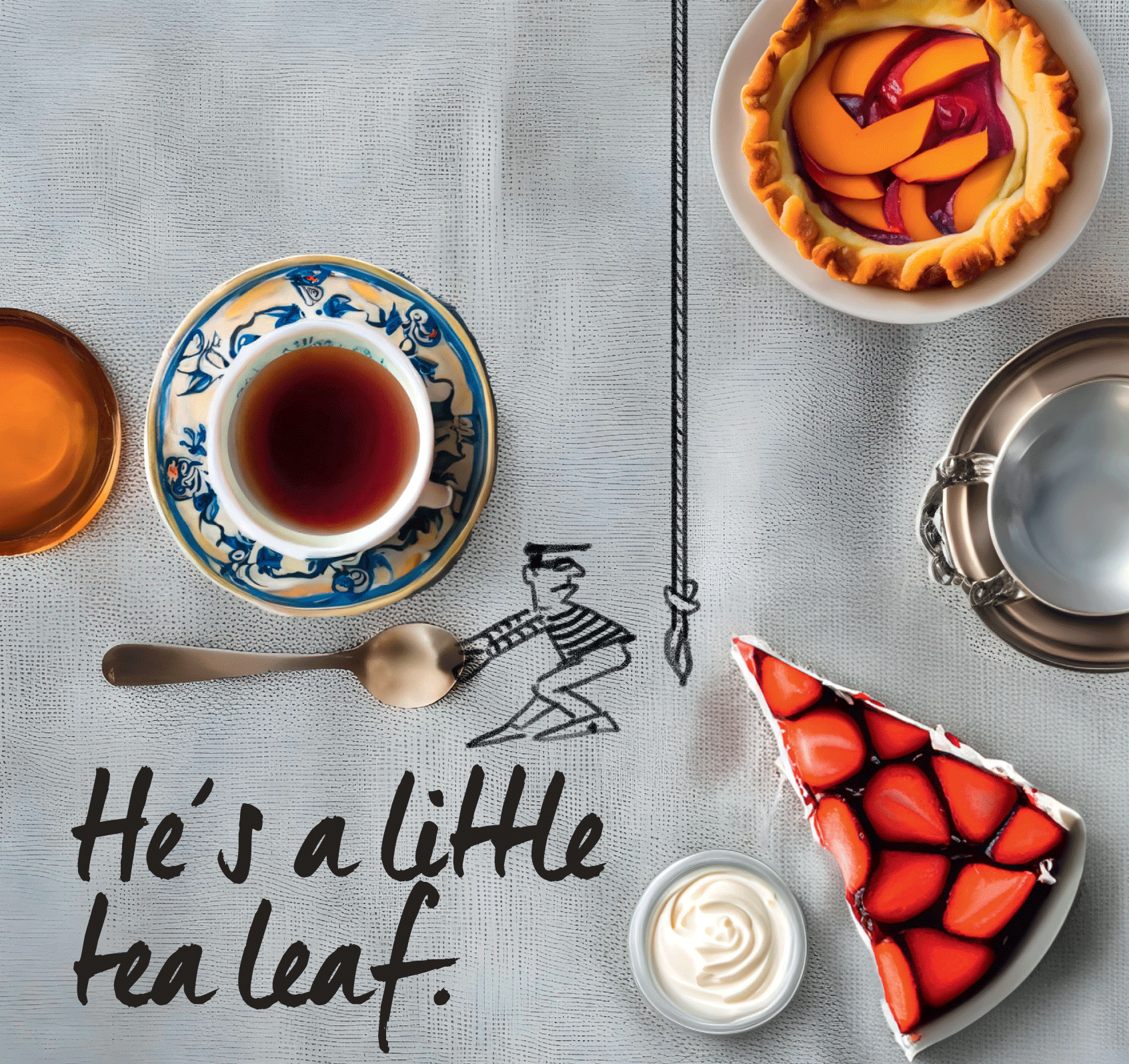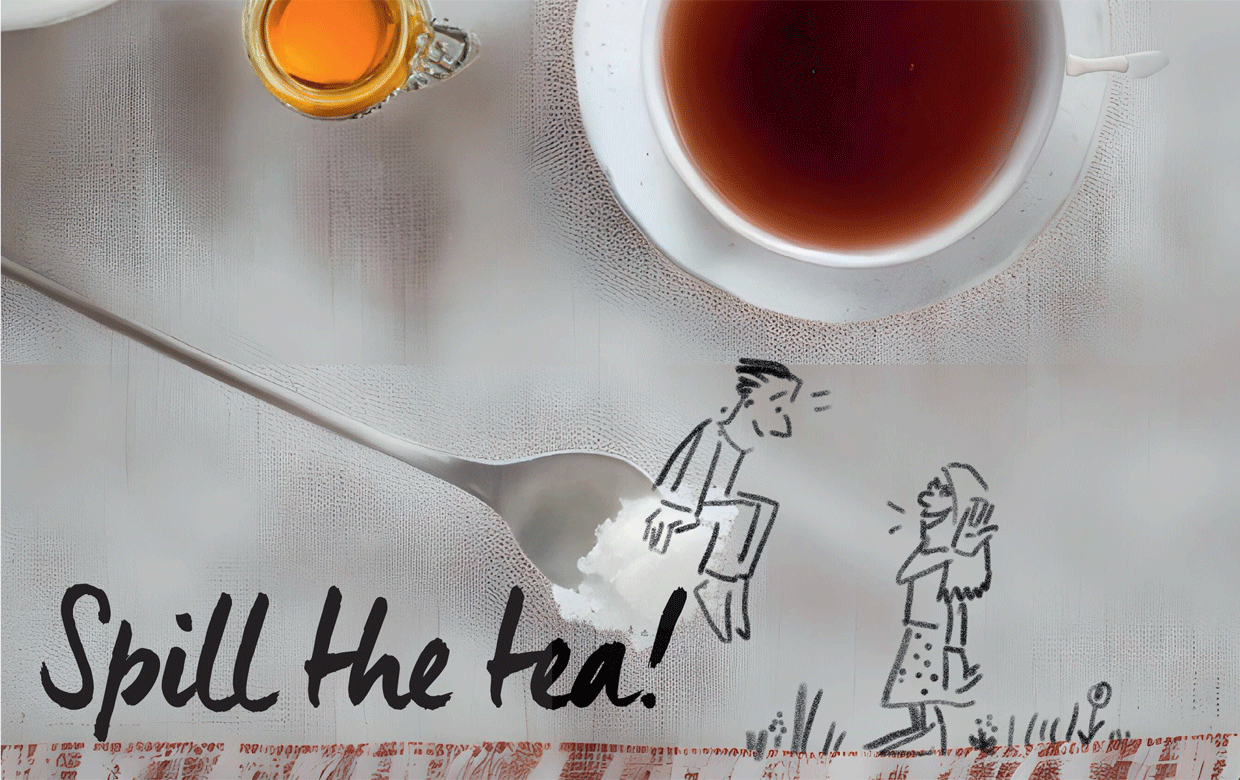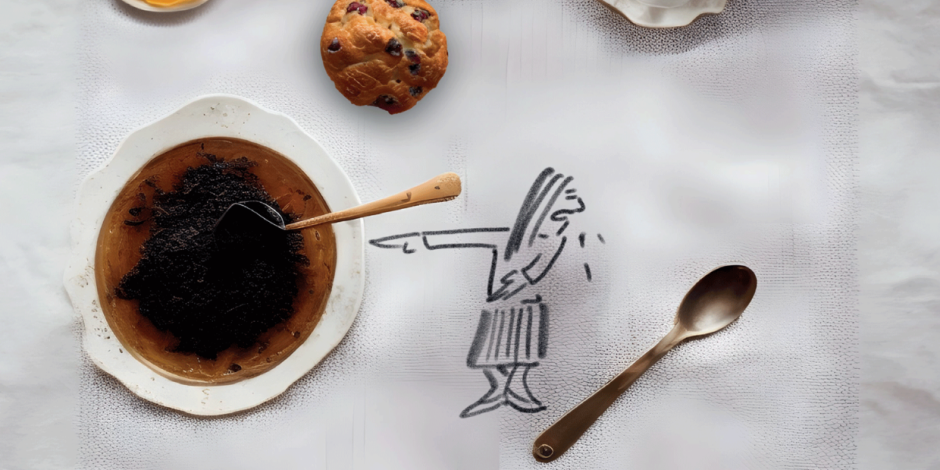“Would you like a cup of tea?” was probably one of the first English phrases you learned, wasn’t it? Along with “Tea with milk, please.” Armed with these phrases, you can survive life in the UK.
But what if someone tells you to “Spill the tea!” Why would they say that?! Let’s put the put the kettle ondas (Tee)Wasser aufsetzenkettle on and find out…
It’s not my cup of tea
This means: “I don’t like it” or “It’s not the sort of thing I usually like.” It’s a polite way to say you don’t like something. So, if you’re asked to the opera and you don’t want to go, it’s nicer to say: “To be honest, it isn’t really my cup of tea,” rather than, for example: “I’d rather stick pinNadelpins in my eyes!”
Not for all the tea in China
If you consider something to be a complete be a no-no (ifml.)gar nicht gehenno-no, you can say: “I wouldn’t do it for all the money in the world” – or “...for all the tea in China.”
A penny to a pound of tea
This is a way of emphasizing that you’re so certain about something that you’d be willing to bet money on being right: “A penny to a pound of tea, he’ll be late again.”
A storm in a teacup
A British “storm in a teacup” is the same as a German Sturm im Wasserglas – a lot of unnecessary anger, worry or excitement about something that seems big now but is actually unimportant or exaggeratedübertriebenexaggerated and won’t last long. In the US, the phrase is “a tempest in a teapot”.

He’s a little tea leaf
In Cockney rhyming slang, a “tea leaf” is a thief. You might hear this expression in a British TV crime series.
A chocolate teapot
Why don’t we make teapots out of chocolate? Because they would melt and be totally useless. So, if something is badly designed or inadequate, you can say: “It’s as much use as (or: as useful as) a chocolate teapot.” An umbrella in a hurricane, or your firm’s new IT system – they’re as much use as a chocolate teapot.
Shall I be mother?
This rather old-fashioned question means: “Shall I pour sth.etw. einschenkenpour the tea?” It goes back to the old days, when the mother of the family would traditionally be in be in charge of sth.für etw. zuständig, verantwortlich seincharge of the teapot at the tea table.

Spill the tea!
spill sth.etw. verschüttenSpilling your tea is usually a bad thing – nobody wants tea all over the table or their clothes. But idiomatically, “Spill the tea!” – originally “Spill the T!” or “What’s the T?” (where “T” stands for “truth”) – means: “Tell me the latest news or gossipKlatsch, Tratschgossip with all the juicy (ifml.)hier: pikantjuicy details!” It’s a phrase used mostly by the under-30s. An older expression is “Spill the beans!”
Neugierig auf mehr?
Dann nutzen Sie die Möglichkeit und stellen Sie sich Ihr optimales Abo ganz nach Ihren Wünschen zusammen.



